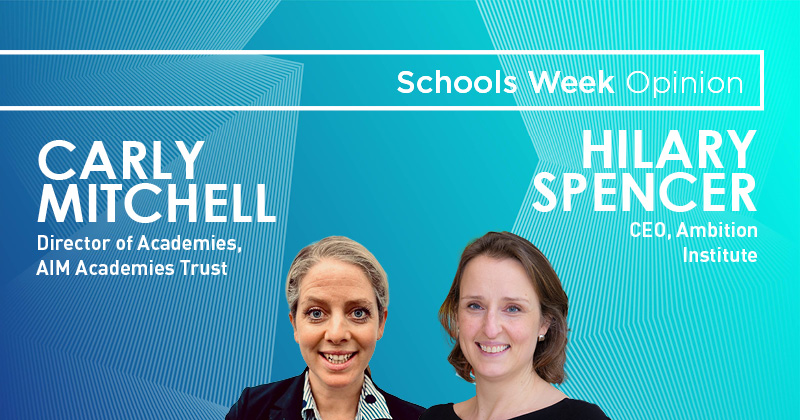-
Spice up your Wednesday with a food truck rodeo

“For the most part we really are just one big happy food truck family and we try to love on each other and support each other.” — Tee Medford of Appalachian Smoke BBQ food truck From savory blackened alligator tacos and smoked pork loaded potatoes to delectable cheesecake custard —the food trucks in Haywood County…
-
Today in Entertainment History: MTV debuted “Thriller” video

#inform-video-player-1 .inform-embed { margin-top: 10px; margin-bottom: 20px; } #inform-video-player-2 .inform-embed { margin-top: 10px; margin-bottom: 20px; } On Dec. 2, 1933, “Dancing Lady,” Fred Astaire’s first film, was released. Joan Crawford was his dance partner. In 1943, “Carmen Jones” opened on Broadway. It was a contemporary reworking of the Bizet (bee-ZAY’) opera “Carmen” with an all-black…
-
Advice | Ask Amy: How do I explain that I’m not working for mental health reasons?
Dear Amy: I am a woman in my mid-40s with two grown children. I have suffered with depression and anxiety for much of my life. I am on medication and work weekly with a therapist. Things have been under control until recently. Over the past few months my mother had a stroke, my husband had…
-
Today in History: December 2, Senate condemns McCarthy

Today is Saturday, Dec. 2, the 336th day of 2023. There are 29 days left in the year. Today’s Highlight in History: On Dec. 2, 1954, the U.S. Senate passed, 67-22, a resolution condemning Republican Sen. Joseph R. McCarthy of Wisconsin, saying he had “acted contrary to senatorial ethics and tended to bring the Senate…
-
PLAYL | Finding your car and being sure you are not lost
Steve Playl — Viewpoint Steve Playl | Viewpoint Want to know what I miss about the older cars? What I miss is not missing from all cars, and especially not pick-up trucks, but I haven’t had a car with one of these in many years. A few years ago we had a twenty-something year old…
-
Free schools embody the innovation our system needs

More from this theme Recent articles <!– –> <!– –> Last week, the New Schools Network published a report looking at the impact of the free school programme. A flash of nostalgia took us back ten years to the policy debates of the time and our own roles in helping to set up a new…
-
Curious about artificial intelligence?

Learn about the growing field of AI during the monthly Issue and Eggs hosted by the Haywood Chamber of Commerce at 8 a.m. Wednesday, Dec. 6, at The Terrace Hotel at Lake Junaluska. Presenter Ian Selig from Western Carolina University will give a talk titled “Artificial Intelligence SWOT Analysis.” Selig, an educational developer at WCU,…
-
I’m a Travel Writer, and These Are the Only 13 Cozy Styles I Pack for Winter Trips

Ask me to fit my summer resort wear in a carry-on? Challenge gladly accepted! But when it comes to my winter wardrobe, I sometimes stare at stacks of chunky knit sweaters and a lineup of boots and wonder how I’ll Tetris them into my suitcase. But one thing I learned as a fashion closet intern…
-
จุ๊บแจง วอนอย่าเพิ่งเบื่อ ละครพรหมลิขิต งานแต่งเลื่อนไม่มีกำหนด | สยามนิวส์
วิงวอนแฟนละครอย่าเพิ่งเบื่อละครพรหมลิขิตเพราะยังมีเซอร์ไพรส์อีกเยอะ และล่าสุดสาว จุ๊บแจง วิมลพันธ์ ยังได้ถือโอกาสอัปเดตเรื่องพิธีวิวาห์กับแฟนหนุ่ม บอมบ์ อัศจรรย์ ที่ตอนแรกวางแพลนไว้ว่าจะถูกจัดขึ้นช่วปลายปีนี้ เป็นอีกหนึ่งละครที่กำลังมาแรงและเป็รกระแสอย่างมาก สำหรับละครเรื่อง พรหมลิขิต และกำลังเกิดกระแสดราม่า ละคร พรหมลิขิตถูกติงบทยืดเยื้อไม่สนุกเหมือนภาคแรก โดยจุ๊บแจง วิมลพันธ์ ที่ได้รับบทเป็น จวง ในเรื่อง ก็ได้ออกมาเปิดเผย ถึงกระแสพรหมลิขิตถูกที่ติงบทยืดเยื้อ ซึ่ง จุ๊บแจง ได้วิงวอนแฟนละครอย่าเพิ่งเบื่อละครพรหมลิขิตเพราะยังมีเซอร์ไพรส์อีกเยอะ และล่าสุดสาว จุ๊บแจง ยังได้ถือโอกาสอัปเดตเรื่องพิธีวิวาห์กับแฟนหนุ่ม บอมบ์ อัศจรรย์ ที่ตอนแรกวางแพลนว่าจะถูกจัดขึ้นช่วงปลายปีนี้ ภาพจากjubjang_vimolphan ภาพจากjubjang_vimolphan และสาว จุ๊บแจง ยังได้ถูกถามถึงการแต่งงานและการวางแผนมีลูก โดยเจ้าตัวได้ตอบว่า เรื่องงานแต่งที่จะเกิดขึ้น ?ตอนนี้ไม่มีกำหนดแล้ว ความจริงเราจะแต่งปลายปี แต่พอมาถึงวันนี้ ตารางงานไม่ว่างกันเลย ก็ต้องเลื่อนไปอีกไม่มีกำหนด ถามว่าเสียใจไหมก็เสียใจนะ เพราะเราได้พระราชทานน้ำสังข์จากสมเด็จพระสังฆราชมาแล้ว เราก็อยากเอาน้ำสังข์มาให้ผู้ใหญ่ที่เรานับถือ ได้รดน้ำอวยพรให้เรา แต่ในเมื่อมันยังแต่งไม่ได้ก็เลื่อนไปก่อนก็ได้ ภาพจากjubjang_vimolphan ภาพจากjubjang_vimolphan และยังถูกถามอีกว่า อยู่กินฉันสามีภรรยา ? ด้านเจ้าตัวก็ได้ตอบว่า ย้ายมาอยู่ด้วยกันแล้ว ซื้อบ้านซื้อเรือนหออยู่ด้วยกันเลย…
-
Kalamazoo-area high school boys basketball scores for Dec. 1, 2023

KALAMAZOO, MI – Just like that, the high school basketball season has its first Friday night under its belt. There were several teams that either kicked off or ended their first week of basketball in the Kalamazoo-area, so be sure to check out all the final scores from Friday, Dec. 1, 2023 below.

